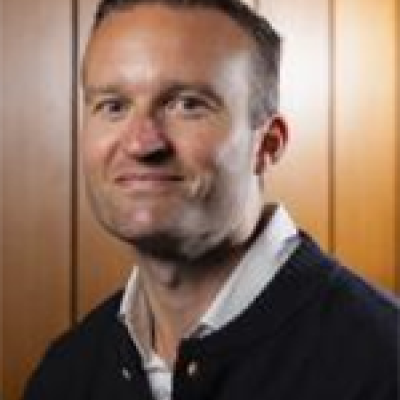Professor Richard Bailey
Professor of Environmental Systems
Fellow and Tutor at St Catherine's College, Oxford.
Co-Director of Oxford Luminescence Dating Laboratory
Leader of CoHESys-lab research group
Professor of Environmental Systems
Fellow and Tutor at St Catherine's College, Oxford.
Co-Director of Oxford Luminescence Dating Laboratory
Leader of CoHESys-lab research group
Academic Profile
Richard Bailey is Professor of Environmental Systems; a Tutorial Fellow and Dean of St Catherine's College; a Senior Research Fellow at the Institute for New Economic Thinking (Oxford); and a member of the Oxford Biodiversity Institute (Oxford Martin School). He is also the Co-Director of the School of Geography and the Environment's Luminescence Dating Laboratory. Prior to September 2006, he held positions including a Lecturership in Physical Geography (Royal Holloway, University of London), NERC Postdoctoral Research Fellowship (University of Oxford), Research Fellowships at St John's College and the Research Laboratory for Archaeology and the History of Art (University of Oxford); and a Stipendiary Lectureship in Physical Geography, St Catherine's College (Oxford).
He acts as a reviewer for several international journals in the fields of environmental change, sustainability, applied physics, and has reviewed grants for various UK and international bodies. He is a member of several learned societies including St John's College, Oxford, the American Geophysical Union, and the Royal Geographical Society.
Current Research
Richard's current research interests are in the dynamics of natural environmental systems and coupled human-environment interactions over a range of timescales and contexts. Information on Richard's research group (CoHESyS-lab: Complex Human Environmental Systems Simulation Laboratory) can be found at http://www.cohesys-lab.net. The group works on understanding the dynamics of human, environmental, and coupled human-environmental systems, using mathematical modelling, numerical simulations, and empirical data analysis. Many of the problems are theoretical, but the group also has a strong focus on applied projects - mostly on sustainability, and mostly in relation to ocean systems. The models created provide tools for all sorts for experimentation, and in the context of H-E systems are used alongside a variety of machine-learning methods for the development and exploration of implementable policies.
Brief details of two on-going projects are given below:
Marine resource management
This work forms part of the Oxford Martin School Programme on Sustainable Oceans (of which Richard is a co-Director), and uses a combination of theoretical modelling and empirical data analysis to investigate new practical approaches to fisheries management in a range of contexts. The extraction of ocean resources plays out as a complex interaction between ocean ecology, collections of individual fishermen, economic conditions and policy constrants/incentives. Finding management solutions which engender sustainability both ecologically and economically, in conditions which are dynamic and heterogeneous on a variety of temporal and spatial scales, is non-trivial and is the key problem that drives this research. The current project is a collaboration between University of Oxford (School of Geography and the Environment; Institute for New Economic Thinking), Ocean Conservancy, George Mason University (US), University of California at Santa Barbara (US). See CoHESyS-lab and The Oxford Martin Programme on Sustainable Oceans for further details.
Stability of ocean systems under the influence of multiple external stressors
A combination of drivers is already influencing ocean biological communities, and the ecosystem services they provide, in significant ways. While habitat destruction and overfishing continue to top the list of critical near-term threats to the ocean, there is growing concern that changes in underlying ocean conditions (e.g. water temperature, pH associated with climate change) will combine with these direct drivers to push marine systems into new, dysfunctional states. To supplement ongoing empirical work, there is a strong need for an effective analytical framework to quantify the effects of multiple stressors and to evaluate the consequences of interacting climate and non-climate stressors in marine systems. In response to these needs, Richard and his team have developed a new model framework (OSIRIS - Ocean Systems Interactions, Risks, Instabilities and Synergies) to help explore possible system-level consequences of multiple external environmental forcings. This project is run in close collaboration with Ocean Conservancy, along with partners in Stanford University, and is supported also (in terms of cloud-based computation) by Amazon Web Services (AWS).
Teaching and Supervision
Undergraduate teaching
Richard contributes to the core 'Geographical Techniques (Statistical Analysis)' course for the Preliminary Examination. He teaches a final honours course entitled 'Complexity', on complex systems, and contributes to the core Earth Systems Dynamics, Geographical Techniques, and Environmental Geography courses.
Postgraduate teaching
He teaches on various across the MSc programmes, on a mixture of subjects including statistics, modelling and environmental management.
Current Graduate Research Students
| Maike Nowatzki | Exploring Morphology and Morphological Drivers of Dunefields using Deep Learning and Remote Sensing Approaches |
| Thomas Youngman | Macroeconomic modelling to guide the UK climate transition |
Recent Graduate Research Students
| Emily Neil | Assessing the impacts of rewilding at the Knepp Estate, UK, using ensemble ecosystem and agent-based models |
| Diana Bailey (RLAHA, Oxford) | Development of LM OSL Analysis Techniques for Applications to Optical Dating |
| S. Pawley | (2007; Univ. of London) |
| J. Singarayer | (2004) |





